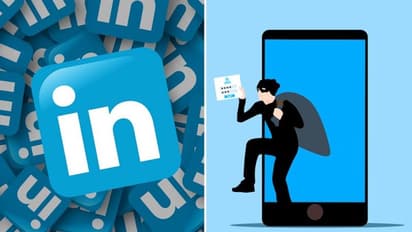LinkedIn is now the most impersonated brand by phishing scammers: Report

Synopsis
According to cybersecurity firm Check Point, phishing attacks impersonating LinkedIn made up over half (52%) of all attempts globally in the first quarter of 2022.
In some worrying news for LinkedIn users, a report on Tuesday stated that the professional networking platform has become by far the most impersonated brand for phishing attacks. According to cybersecurity firm Check Point, phishing attacks impersonating LinkedIn made up over half (52%) of all attempts globally in the first quarter of 2022.
This represents a 44% increase compared to the previous quarter, Q4 2021 when LinkedIn was the fifth most impersonated brand and accounted for only 8 per cent of phishing attempts.
“These phishing attempts are attacks of opportunity, plain and simple. Criminal groups orchestrate these phishing attempts on a grand scale, with a view to getting as many people to part with their personal data as possible,” Omer Dembinsky, Data Research Group Manager at Check Point Software, said in a statement.
“Some attacks will attempt to gain leverage over individuals or steal their information, such as those we are seeing with LinkedIn. Others will be attempts to deploy malware on company networks, such as the fake emails containing spoof carrier documents that we are seeing with the likes of Maersk. If there was ever any doubt that social media would become one of the most heavily targeted sectors by criminal groups, Q1 has laid those doubts to rest,” Dembinsky added.
Also read: Infosys, HCL, Wipro, TCS, more: Top 2022 companies in India by LinkedIn
CPR said the findings reflected an emerging trend of social engineering scams shifting away from shipping companies and tech giants toward social media networks. In Q1 2022, social networks were the most targeted category, followed by shipping.
CPR also provided examples of phishing attacks it observed during Q1. In one of these, a malicious email was designed to steal the victim’s LinkedIn credentials by enticing them to click on a malicious link that redirects the user to a fraudulent LinkedIn login page.
DHL is second to LinkedIn, accounting for 14 per cent of phishing attempts, followed by Google (7 per cent) and Microsoft (6 per cent). FedEx has moved from the seventh position to the fifth, now accounting for 6 per cent of all phishing attempts.
WhatsApp maintained its position in the top ten, accounting for almost one in 20 phishing-related attacks worldwide. Maersk and AliExpress have entered the top ten list for the first time.
Find the latest Technology News covering Smartphone Updates, AI (Artificial Intelligence) breakthroughs, and innovations in space exploration. Stay updated on gadgets, apps, and digital trends with expert reviews, product comparisons, and tech insights. Download the Asianet News Official App from the Android Play Store and iPhone App Store for everything shaping the future of technology.